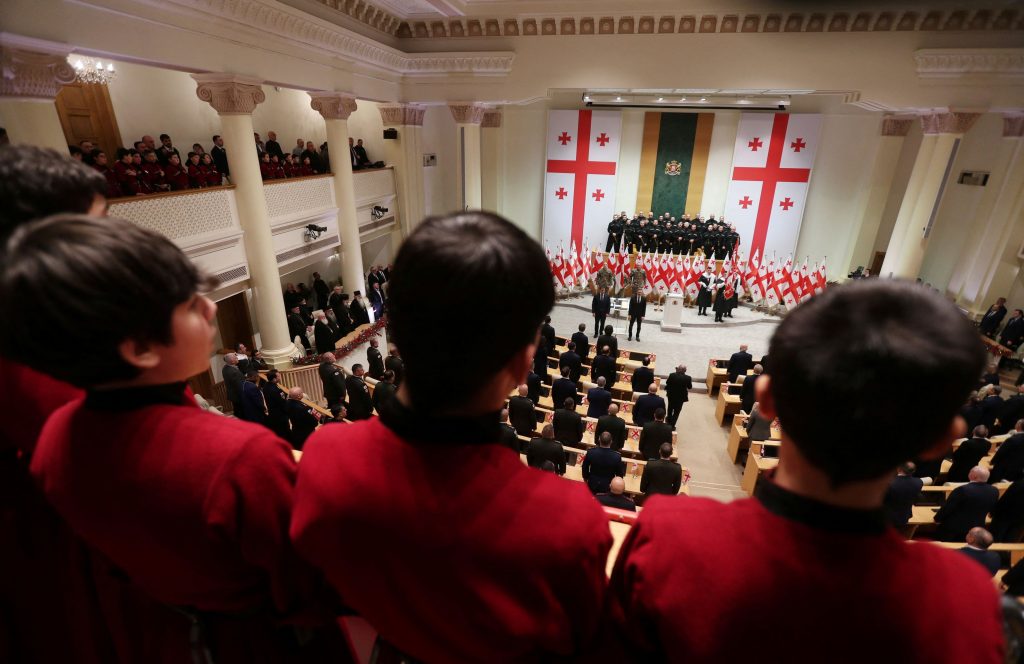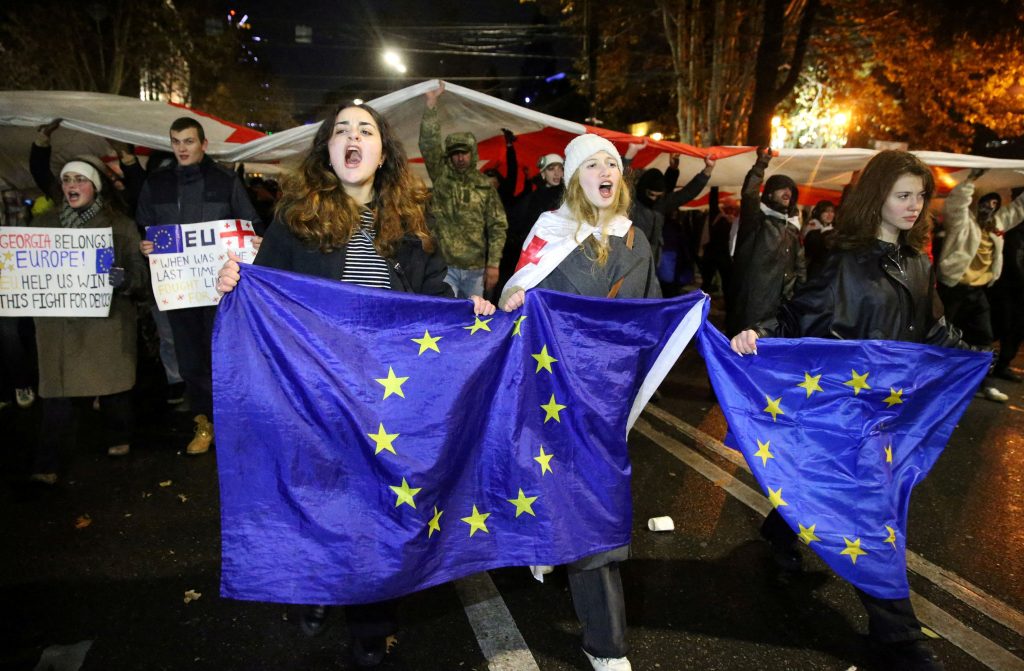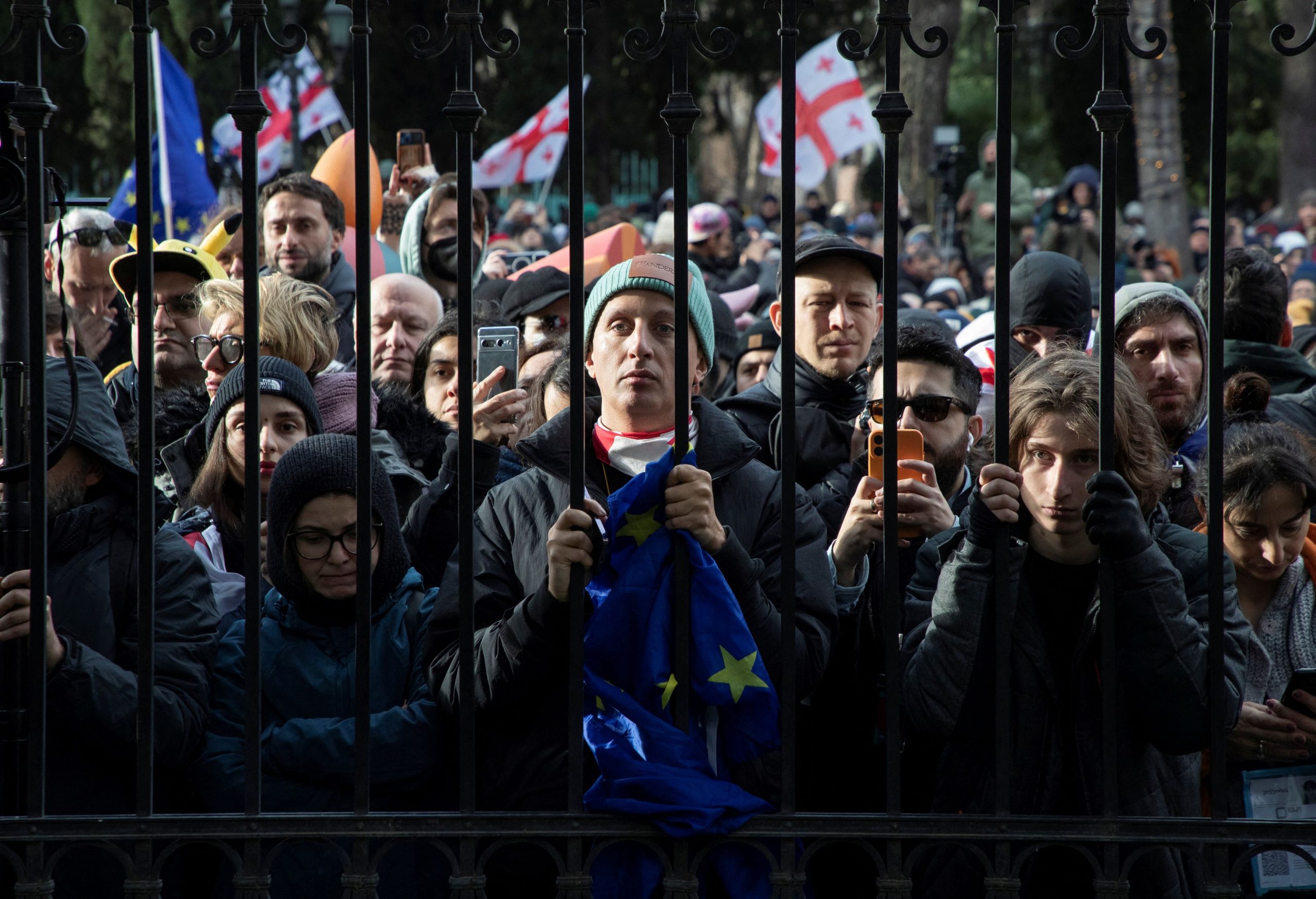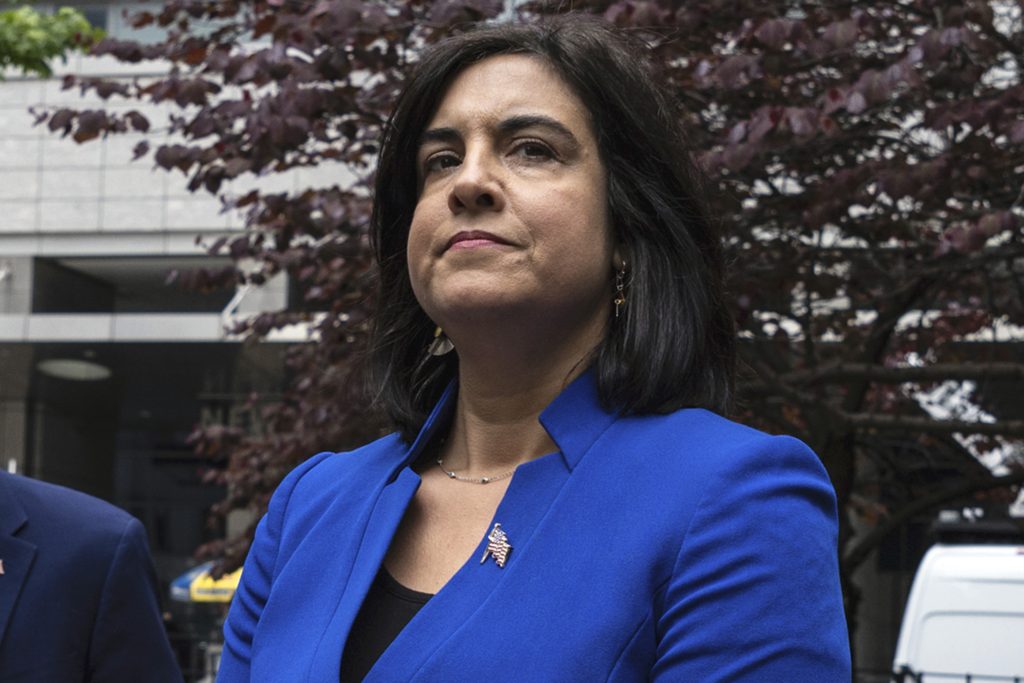Mikheil Kavelashvili, a former football player turned far-right politician, was sworn in as Georgia’s new president on Sunday, December 29, during a parliamentary ceremony. Kavelashvili, backed by the ruling pro-Moscow and increasingly authoritarian Georgian Dream (GD) party, faced widespread controversy in the aftermath of a disputed election process.
Despite the transition, Georgia’s pro-Western, legitimate president, Salome Zourabichvili, confirmed she would leave the presidential palace but remains the country’s rightful officeholder.

Outgoing Georgia’s President Salome Zourabichvili addresses supporters and journalists on the day of the swearing-in ceremony of new Georgia’s president Mikheil Kavelashvili, at the Orbeliani presidential palace in Tbilisi, Georgia December 29, 2024. REUTERS/Daro Sulakauri
“I will leave this place and come out to be with you… This presidential residence was a symbol as long as there was a legitimate president here. I bring legitimacy with me,” Zourabichvili declared on Sunday morning, addressing a crowd of at least 2,000 pro-EU protesters gathered in Tbilisi.
The protesters, holding red cards as a mock reference to Kavelashvili’s former football career, voiced their discontent with the election results.
After Salome Zourabichvili’s speech at Orbeliani Palace, protesters marched to Parliament, where disputed President Mikheil Kavelashvili was inaugurated, some carrying red cards referencing his football career.
🔴 Live updates: https://t.co/g7E3GQsHhH pic.twitter.com/tRefBeyAji
— OC Media (@OCMediaorg) December 29, 2024
On December 14, Georgian lawmakers, in a controversial parliamentary vote, elected Kavelashvili as the country’s new president. Kavelashvili was the only candidate on the ballot, prompting accusations of illegitimacy and sparking protests across the country.

Georgia’s new president Mikheil Kavelashvili speaks during his swearing-in ceremony at the parliament in Tbilisi, Georgia December 29, 2024. REUTERS/Irakli Gedenidze/Pool
Zourabichvili contends that Kavelashvili was not properly elected, as the lawmakers who voted for him were chosen in the disputed October parliamentary election, which she claims was marred by fraud. This view is supported by Georgia’s opposition parties.
In contrast, the ruling Georgian Dream party and the country’s election commission maintain that the October elections were free and fair, asserting that Kavelashvili is the legitimately elected president.

Georgian parliament speaker Shalva Papuashvili stands next to new president Mikheil Kavelashvili during his swearing-in ceremony at the parliament in Tbilisi, Georgia December 29, 2024. REUTERS/Irakli Gedenidze/Pool
Kavelashvili’s election follows the Georgian Dream’s controversial decision to freeze the EU accession process until 2028, a reversal of the country’s long-standing constitutional goal of joining the European Union.
This decision, coupled with Kavelashvili’s rise to power, has further deepened the political crisis in Georgia, with growing concerns about democratic backsliding and the country’s increasing ties with Russia.

FILE PHOTO: Supporters of Georgia’s opposition parties carry the European Union flags during a rally to protest against the government’s decision to suspend talks on joining the European Union, in Tbilisi, Georgia December 13, 2024. REUTERS/Irakli Gedenidze/File Photo



